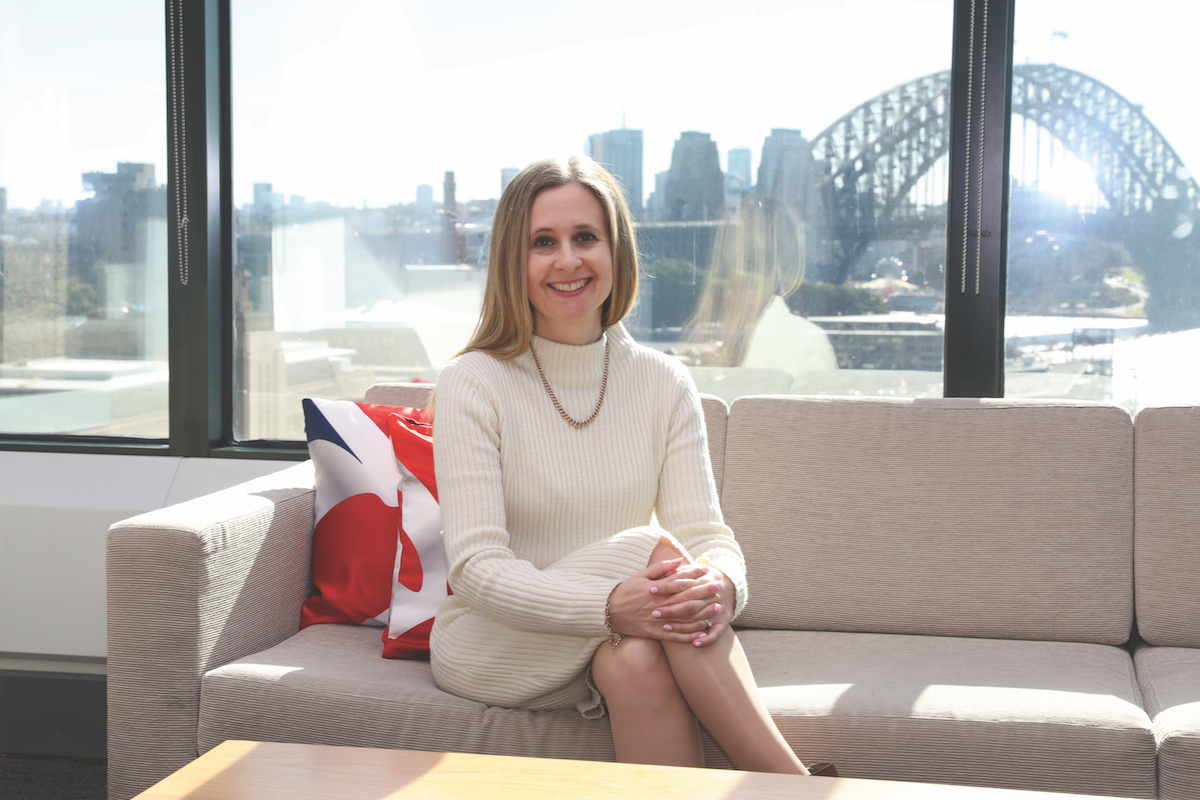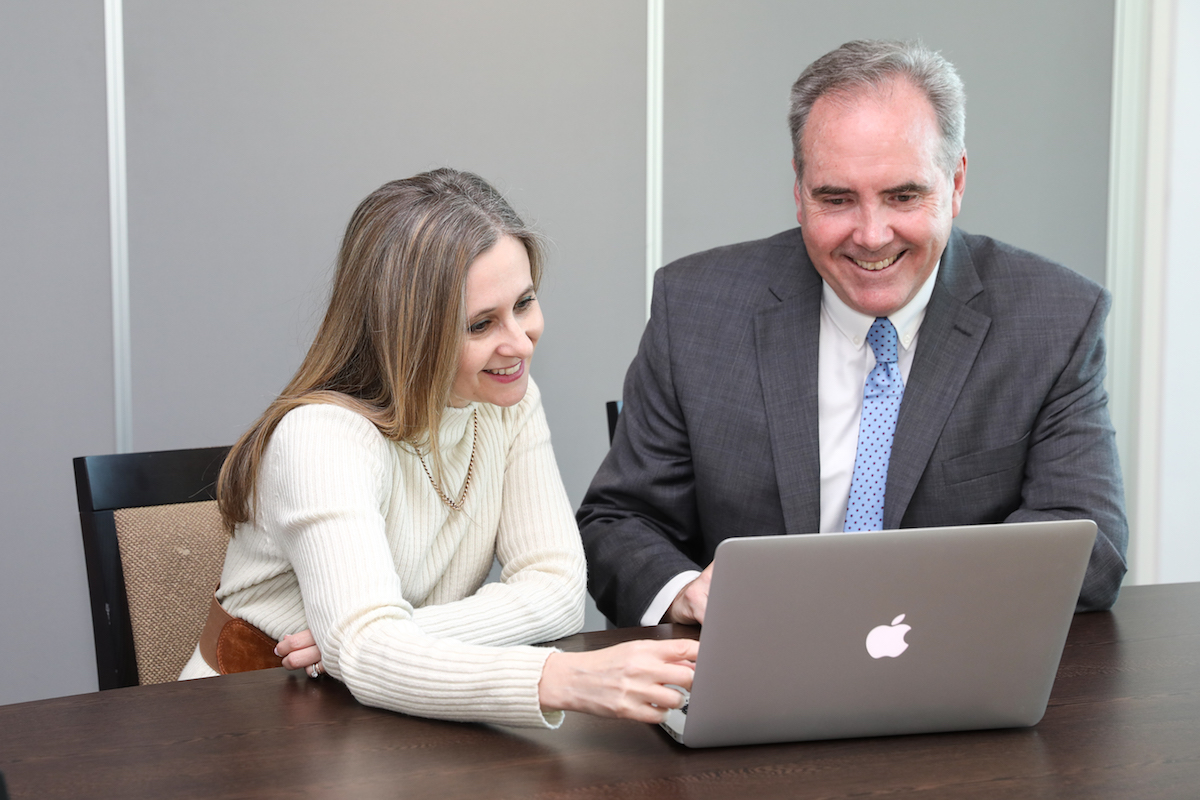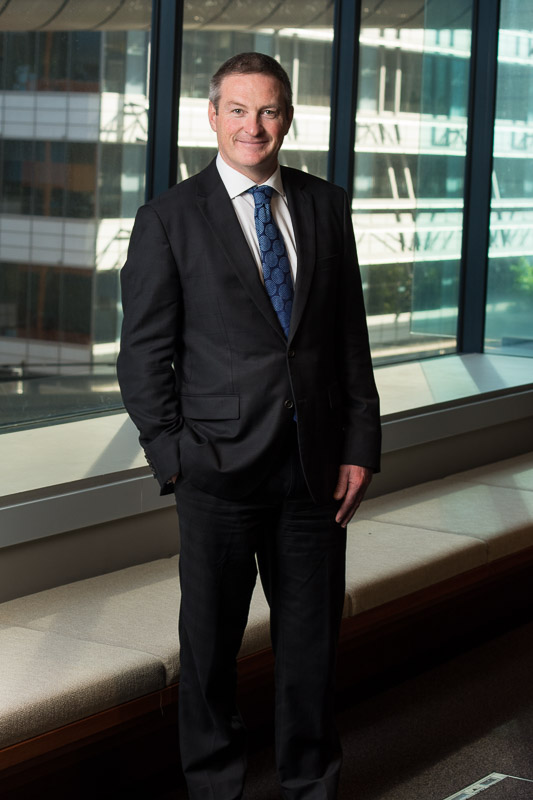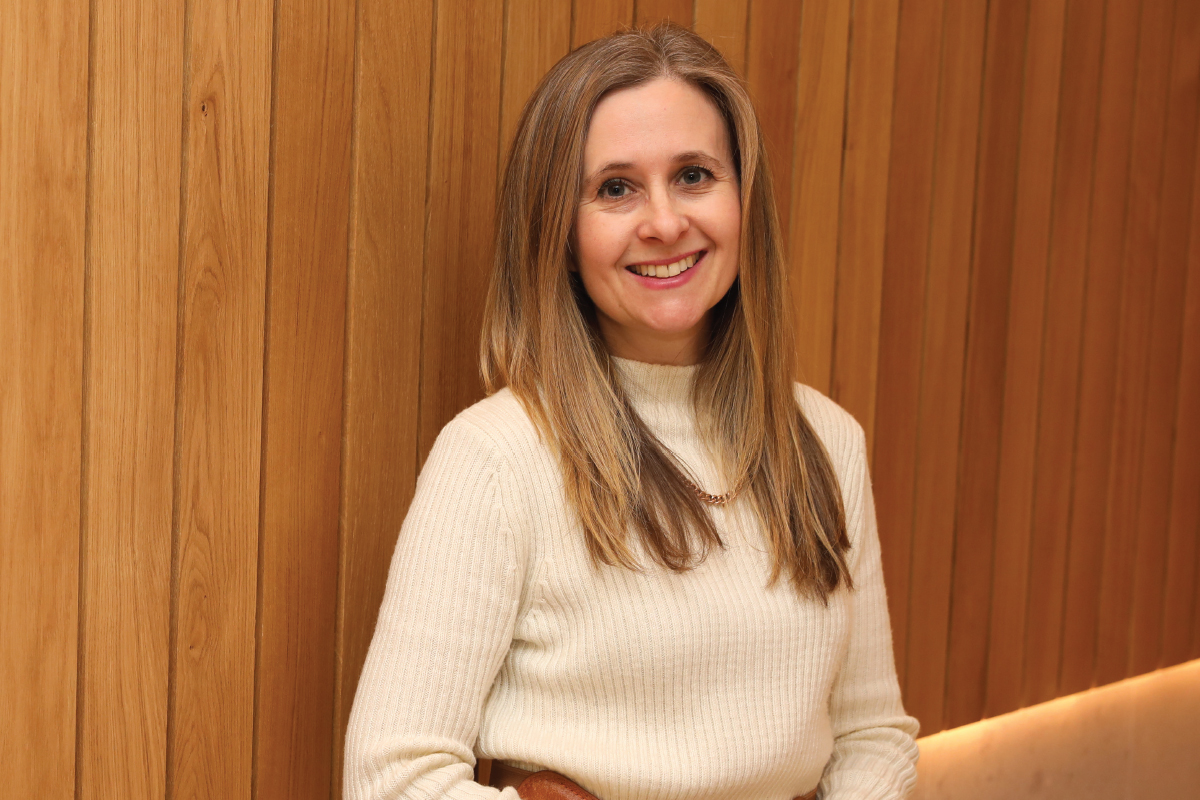Sharon Melamed has often found herself in the right place at the right time – a fact that has seen her travel the world, transform organisations, and launch her own successful business, Matchboard. Of course, it never hurts to readily put yourself into those right places when the opportunity presents itself either.
For instance, not long ago she found herself visiting the home of the British Consulate-General, along with 15 other Australian entrepreneurs, for a networking dinner. This was a good idea, thought Sharon, as she had recently decided she wanted to expand her business to have an international footprint, but hadn’t settled on whether the US or the UK would be the best fit. It was this experience that was just the push she needed to make her decision.
“The atmosphere was really contagious around the UK and the opportunity it presented,” says Sharon. “After that event, I started taking the prospect of setting up in the UK very seriously. Our mandatory criteria for looking at which market we wanted to expand into were that it had to be English speaking, and it had to have greater scale than Australia, which left the US or the UK, and we chose the latter.”
She has since set up a sister business in London known as AboutMatch. Similar to Matchboard, it’s an online platform where her clients, too, can position themselves in the right place, so that when a person or business seeking a service or product comes calling, they will be ready to answer.
Sharon Melamed has a love for languages
Sharon has a long history of having the right skills for the right occasion, in unexpected ways. This stretches back to when she attended the University of Sydney to study languages, specifically Japanese, German, French and linguistics, and later Hebrew. One day in 1993, not long after Sydney had been announced the winner of the bid to host the 2000 Olympic Games, Sharon was walking through the park and encountered a Japanese film crew.
“I approached them and asked in Japanese, ‘Would you like me to take a photo of you against the city skyline?’ And they were in total shock that I spoke to them in Japanese,” Sharon says. “As it turned out, they were looking for a bilingual presenter.”
While most students earn their keep in the retail or hospitality industries, Sharon managed to bypass stocking shelves and wiping tables, instead working as a TV presenter. “We made a documentary on the Olympics that was shown in five-star hotels around Sydney for many years, because many of them had a Japanese TV channel to cater to the large influx of Japanese tourists at the time,” says Sharon.
This wasn’t the first time her experience with other languages and cultures helped her find her way through life. “I’ve always been fascinated by other cultures and what we can learn from them to improve our own approach to life and business,” she says.
“Foreign languages were the key to unlocking those insights and to really get to know people. I’ve found that in business, as much as in my personal life, that was very helpful, and I incorporated many of the best elements of the different cultures I’ve been exposed to into Matchboard’s model.”
Making the move into business development
Straight out of university, Sharon used her proficiency in Japanese and joined customer service firm Prestige International, working as a Japanese-speaking call centre agent. It was only a few months into the role, however, that she became bored and restless.

“I had a natural inclination for business development, so I asked management if I could switch into that type of role, even though I’d never had any formal training,” she says. “It went extremely well, so much so that they approved to transfer me to the US to head up their international sales division.”
Sharon ended up working with Prestige for 15 years, 10 of which were spent in the US where she met her husband, had her first child, and joined the company’s leadership team as a senior vice-president – which was when she helped to steer the company through its IPO preparation.
“It was an amazing ride. And because I was the only Westerner there, and therefore the only person on the leadership team who spoke fluent English, they just let me have complete free rein to do what I wanted to develop the business internationally,” says Sharon. “That was such an extraordinary experience: to throw myself in the deep end, to develop the business and run my own show, but on someone else’s purse strings. That really laid the foundation for me to become an entrepreneur.”
Tinder for the commercial world?
Despite being likened to the successful dating website, Sharon says Matchboard and AboutMatch aren’t looking to extend their services into the mobile app market. “Though we apply the same sort of filters with our matching service, people tend to be more picky when finding a life partner, compared to finding a supplier,” says Sharon.
“With our site, they decide to go with one of our referrals, and that’s it; it doesn’t go on and on. An app is more appropriate if you’re constantly using it; it’s in your hip pocket. But if you’re just using it on a transactional basis, it’s probably more something you revisit every six months.”
Ready to leave the corporate world
After moving back to Australia with her family in 2005, she spent two years as a business development manager with Sitel, before another adventure called. “My family and I decided to pack our bags and move to Israel for a year. I had always wanted to do that,” says Sharon. When they returned to Australia, she started in a Director of Business Solutions role with Excelior, which was soon acquired by Serco.
“To be honest, after four and a half years I was really at my wit’s end with that job. There was the acquisition going on, and at the time the strategy was very unclear. But the good thing about not liking your job is that it gives you the impetus to think of what you’d do differently if you were in control of your own business. That’s what triggered me to come up with Matchboard.”
The good thing about not liking your job is that it gives you the impetus to think of what you’d do differently if you were in control of your own business.
Sharon admits she was ready to leave the corporate world too, and its associated travelling, long hours and crazy deadlines. “It didn’t suit me anymore. You move through different chapters in your life, and so I took the time to think about what I wanted to do, and in 2012 Matchboard was it.”
Matchboard, the culmination of Sharon’s entrepreneurial dream
So, after 23 years in sales for global outsourcing companies, Sharon followed her entrepreneurial dream and founded Matchboard’s unique and free digital platform, which quickly matches its users with suppliers in different niches, in particular sales and marketing, customer service and back office.
Once users submit responses to a short questionnaire about the service they’re after, a shortlist of matched vendors then get in contact, all of which have been screened to ensure a history of happy customers.
“It used to be that people just looked everything up in the Yellow Pages, where they’d have to sift through tonnes of different options. Search engines were the next evolution for that to go a bit faster and narrow down the search, but it’s still a directory model with hundreds of results,” explains Sharon.

“It’s an absolute frustration. Matchboard represents the death of that directory. Technology has come so far, so why should we have to sift through long lists? People are too time poor these days, and just because someone appears at the top of the list doesn’t mean they’re the best choice. We enable people to put in all their criteria and then we apply filters and narrow it down to between one and five best-fit options.”
A Business of Tomorrow
In 2017, the company reached a big milestone, growing its clientele to 2,000 SMEs, large corporates, and government agencies. This is more than double the figure that Matchboard had in early 2015, and has allowed it to accumulate a lot more data as a means to improve its overall offering.
“It was a very gratifying milestone to achieve. We now do a lot of analytics on our platform around how companies are using our website and how to spot gaps in the market. The more data we amass, the smarter we can become,” says Sharon. “Meanwhile, as we grow our database of suppliers, we can also analyse data on how they perform and help them to improve their own sales conversion.”
Another very notable milestone for Matchboard came in April this year when Westpac named the company one of its top 200 Businesses of Tomorrow, which opened many new doors thanks to the added exposure it earned the brand.
“Having that award really makes people sit up and listen and take you seriously,” says Sharon. “Within a few days of it being announced, I had literally hundreds of new invitations to connect in my LinkedIn inbox, many from senior executives.” Sharon adds that it was also a fantastic learning experience that saw Matchboard connect and partner with some of the 199 Australian-recognised entrepreneurs.
Online dating for the commercial world
Westpac described the B2B matching site as ‘online dating for the commercial world’, a statement Sharon agrees with. “It really is based on an online dating platform, only instead of asking for 6’1”, blonde hair, blue eyes, you say I want a telemarketing service in Australia with experience in financial services to call this many people, for this price,” says Sharon.
“It’s basically the same concept, where there are two sides and the software in the middle marries them up and you get a shortlist of exactly what you’re looking for.” The ongoing success of Matchboard’s model in Australia has seen it extend its services to the UK with international sister brand AboutMatch, launching in July last year, with the help of a grant from the Australian Government.

“It was an unfortunate circumstance from a branding perspective that the Matchboard name was already taken over there, so we went with the similar-sounding AboutMatch. But at the end of the day, I think the main reason for our success is the business model itself, so it’s not make or break with the name,” says Sharon.
AbouMatch gains traction in the UK
As an online business, Matchboard had also tracked where its website visitors came from, and there was a noticeable following growing in the UK, meaning that the market there was already engaging with the company before it had localised its offerings.
“I have great hope for the UK. We’re already seeing some excellent traction. I have a strong belief that the probability of business success is much higher if you share a common culture. We share a common language, values and history, and that dramatically reduces the risk of a business failing or succeeding in a foreign market.”
The UK Government was also very proactive in helping Sharon and her team conduct market research, as well as providing publicity through a promotional video discussing foreign companies that have invested in the UK. This was also broadcast out to its global database.
Another enormous help, adds Sharon, was collaborating on the expansion with consultants from Rimon Advisory, whom Matchboard engaged to help it apply for the government grants that would be instrumental in helping it move internationally. “I strongly recommend Rimon. With more and more Australian companies looking beyond our shores for business opportunities, services like Rimon’s can help them wade through all the paperwork and bureaucracy required to apply for one of these grants,” she says.
“It is extremely time consuming to complete these applications if you don’t know what you’re doing, and you risk not getting the grant if you haven’t understood the process correctly, so it’s a good idea for Australian businesses to seek expert help.”
Basing Matchboard’s business model on trust & honesty
As Sharon’s business dealings take her yet again to a foreign world full of new lessons and experiences, she attributes the success of her business model to the learnings gained from her travels and multicultural background. “The years I spent in Japan learning about the culture really coloured my approach to business,” she says.
“With the Japanese, their view is not that the customer is ‘king’ but that the customer is ‘god’. My leadership style is to focus on the customer and provide an excellent service to whomever I’m dealing with, whether that’s other people in my team or outside customers. It’s a customer-centric approach.”
Another takeaway from her time in Japan was a focus on trust as a key component of strong long-term relationships with clients and partners. “Business in Japan often emanates from relationships of trust, with less reliance on requests for proposals and non-disclosure agreements,” Sharon explains.
“My exposure to this has influenced my decision to base Matchboard’s business model on trust and honesty, and we believe that our suppliers will do the right thing and report to us when our referrals convert to a sale.”
A truly multicultural approach to business
Since Matchboard’s matching service is free, the company’s revenue comes chiefly from its featured suppliers, which pay a percentage of the revenue generated from Matchboard leads. “People have their reservations about the trust model, but it has withstood the test of time. I have no doubt that my experience in Japan gave me the confidence to do this.”
Following a love affair with Japan including 41 trips to the country, Sharon’s 10 years spent in the US within its buzzing start-up scene taught her a lot about the importance of speed and agility when it comes to reacting to market opportunities, and how to instil that sense of excitement and urgency into her team.
“Then, living in Germany for a while taught me to focus on the finer details, so even while leading a company and having that big-picture vision, you still have to stay focused on the small stuff,” says Sharon.
“It was my experience living in Israel, however, where I truly absorbed the entrepreneurial spirit, the sheer determination, and the passion for innovation. “It’s important to show people just how much you believe in what you’ve got and what you offer. That’s when people buy in, when they see how much conviction you have.”
Banking on the long-term
The innovative ways Westpac is focusing on the future of Australian businesses.

Ask Alastair Welsh, Westpac General Manager of Commercial Banking, which businesses he’s particularly excited about partnering with, and he has no trouble reeling off an array of examples across a broad range of sectors.
For instance, there’s a husband and wife start-up, which is bringing innovation to practice management systems, and looking for new solutions in healthcare to solve customer problems. Then there’s the Adelaide developer that’s slashing $20,000 off electricity costs over a five-year period by using suction technology to identify the source of leakages in its properties. There is genuine industry-shaping innovation being fostered throughout Australia, and Westpac is helping this potential to be realised in a changing economy.
So, as a big company, we’re having to think differently and adjust the way we would have historically thought about our business.
“With the rise and success of small businesses with a focus on innovation and collaboration, and a very different way of working, we have moved away from buying businesses, and instead work together with these entrepreneurs to bring a proposition to the market. So, as a big company, we have to think differently and adjust the way we have historically thought about our business.”
Westpac’s Businesses of Tomorrow
Westpac’s overarching objective is to discover and support businesses that will drive Australia’s evolving economy. Hence, why it rolled out its Businesses of Tomorrow program, and earlier this year recognised 200 businesses that it believes have the vision to excel in what is fast becoming a services and knowledge-based economy.

“Westpac backs Australian businesses to be successful from inception through to the long-term,” Alastair continues. “We are focused on creating value for the future of Australian business. With the Businesses of Tomorrow program, we asked ourselves, ‘Should it only be for Westpac customers?’, and we decided against that because we had to be open to anybody bringing exciting and innovative solutions to their respective industries.”
Of course, Westpac is investing in more than innovation, it’s investing in leadership. Alastair stresses the primary avenue for progress and growth is people. “Every sector has its peaks and troughs, but even when a sector is not performing, there will always be successful players,” he says. “And they buck the trend because of how they lead, how they innovate, their vision for the business, and how they engage with stakeholders.”
Supporting local businesses
A Westpac Businesses of Tomorrow report by Deloitte Access Economics revealed that there is an opportunity to increase Australia’s GDP by 4% by harnessing leadership potential. This would equate to an impact of about $70 billion on the nation’s economy. And while technology companies make up 40% of the top 200 businesses and the digital economy is expected to be worth a staggering $139 billion by 2020, Alastair says there’s also plenty of optimism surrounding the agriculture sector, with China’s burgeoning middle-class looking for quality produce.
“Last year, I had the privilege of going to China for a trade summit with a group of agri clients, which was so successful we are making it an annual event. Talking to the Chinese delegates, their focus is on great healthy produce, with guaranteed food protection, and that’s what our agri sector is known for. So, by partnering with good logistics, Aussie producers will be able to get their product off the farm and over to China quicker. With Asia’s growing demand for premium beef, dairy and grain products, we’re well-positioned to service that market.
“Our businesses are well-positioned too, as they have adopted a cash-driven approach in the past five years. We’re seeing a greater understanding of cash flow. Profit is important but cash is critical, and if you run out of cash you encounter big problems.” For 200 years, Westpac has supported the economic progress of local businesses, and by collaborating with established entrepreneurs, the potential for further growth is limitless.



